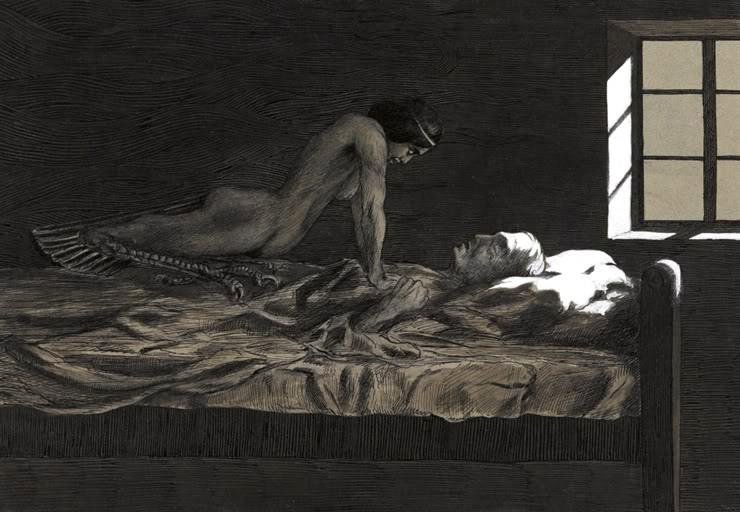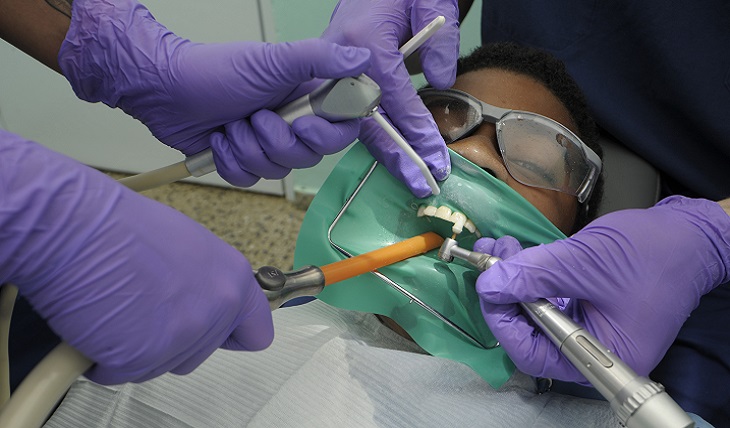What Is Sleep Paralysis – Definition, Causes, Symptoms, Prevention, Treatment

Many people reported that they experience their body becomes stiff, and it is difficult for them to move their body.Scientists of the sleep department termed this condition as Sleep paralysis, and it is somewhere linked with psychiatric issues.
For many years, sleep paralysis is discussed among the people, and it is considered that people experience sleep paralysis due to bad spirits or evil presence.
There are so many folk tales and stories in every region that describe this condition as a huge black spirit terrifying humans while they are sleeping at night.
People are reported with a long and dreadful sleep paralysis experience that is full of terror feelings, and someone is upon them.
What Is Sleep Paralysis?
Definition of Sleep Paralysis is giving in the way that the mind is in a conscious stage, but body movement is unable to do.
It is mostly experienced by the people when they are in the middle of both situations, wakefulness as well as sleepiness at the same time.
During this period, your body is unable to move and even cannot speak for a span of a few minutes.
Some also experience pressure as well as choking by someone on their body.
Sleep paralysis also comes with sleep disorders like narcolepsy. It is a condition in which your desire to sleep overpowers due to the sleep regulation ability of your brain.
When Sleep Paralysis Occur?
Sleep paralysis can occur in two conditions when you are going to fall asleep, either when you are going to wake up.
If sleep paralysis occurs when you are falling to sleep, it is termed as predormital or hypnagogic sleep paralysis. If it occurs during when you are about to wake up, it is termed as postdormital or hypnopompic sleep paralysis.
What Is Hypnagogic or Predormital Sleep Paralysis?
When our body is going to fall asleep, it means our body is moving to a relaxing pose, and you become unconscious of your body. So your body feels light, and you can’t even feel things.
In case you become aware of your body while falling asleep, in such a situation, only your mind is a little aware. But your body is not able to move and speak.
What Is Hypnopompic or Postdormital Sleep Paralysis?
While you are asleep, your body goes under switches between either Non-rapid eye movement (NREM) or Rapid Eye Movement (REM) sleep.
Our body remains in both of these cycles for 90 minutes. First, your body goes through the NREM sleep and covers 75% of your sleep time.
When your body is in an NREM sleep, you get complete body relaxation, and your body restores all the energy that was lost all day.
When NREM sleep time is over, your sleep switches to REM. In this, your eyes move quickly, and you start seeing dreams, but your body remains in complete relaxation.
When you sleep in REM, your muscles turn off, and you can’t move. When you become aware during this sleep cycle before it gets finished, your body may notice zero movements and even hard to speak.
How Sleep Paralysis Develops

It is found that out of 10 people, there are 4 people who have experienced sleep paralysis. It usually occurs first during the teen years, however, it can occur at any age, whether it is men or women.
Sleep paralysis can be a hereditary issue, and it can be run through the family.
There are some other factors that may be responsible for sleep paralysis are:
- Frequent Change In Sleep Schedule
- Lacking In Sleeping Hours
- Bad Mental Health like bipolar disorder or stress
- Sleep on Backside
- Certain type of medication, like for ADHD
- Other types of sleep issues like cramps in legs while sleeping or narcolepsy
- Substance Abuse
Symptoms of Sleep Paralysis
It is said that sleep paralysis is not a chronic medical condition, but knowing its symptoms will make you familiar with it, and you will not get terrified in case of your first experience.
The most common symptom of sleep paralysis is the inability to move your body or speak anything. This episode can last for about two minutes maximum.
Some other symptoms that you may experience during sleep paralysis:
- Someone or something pushing your body down
- Experiencing the presence of someone
- Feeling of fear
- Hypnagogic or hypnopompic sleep paralysis experience that can be said as hallucination can occur before or after sleep.
Some other types of sleep paralysis symptoms include:
- Sweating
- Headaches
- Paranoia
- The feeling of you are dying
- Difficulty in breathing
- Muscles pain
This sleeping condition ends on their own, or it can end if any other person will touch you and shake your body.
Sometimes it also happens that you are aware of what you are experiencing, but you are unable to move your body and speak a single word.
In sleep paralysis, it doesn’t mean that it will hamper your memory, but you can easily recall what happens with you during the sleep paralysis.
There are also some rare cases in which people may experience hallucinations like dreams that result in extreme anxiety and fear. However, these hallucinations are harmless.
Causes Of Sleep Paralysis
Sleep paralysis can be experienced by people of all ages, whether they are children or adults. But it is found that specific groups have a higher risk of experiencing sleep paralysis than other groups.
There are some group that may face the most frequent sleep paralysis and have higher chances of facing this risk:
- Anxiety disorder
- Insomnia
- Bipolar Disorder
- Narcolepsy
- PTSD or Post Traumatic Stress Disorder
Sleep paralysis usually occurs due to a disconnect between your body and mind that happens while you are sleeping.
Some of the most often causes of sleep paralysis are:
Bad sleeping habits and bad sleep hygiene cause sleep paralysis, which is highly important for quality sleep and leads to problems such as sleep apnea.
Disrupted sleep is the main cause of sleep paralysis. You may experience sleep paralysis when you have to travel a lot, working late at night or jet-lagged.
It is also found that most of the people experience sleep paralysis in case any family member experiences sleep paralysis. This shows that sleep paralysis is also a reason for sleep paralysis.
Sleeping on your back is also a major cause of sleep paralysis, and most people are reported with this condition while they are sleeping on their back.
Moreover, a lack of your sleeping duration also increases the chances of feeling sleep paralysis.
Diagnosing Sleep Paralysis
In case you find yourself in a condition in which it is hard for you to move your body or speak a word for seconds or minutes while falling to sleep or waking up. This means that you are experiencing sleep paralysis.
There is no such instant treatment that you can perform while experiencing sleep paralysis.
You have to consult with your doctor in case any of these below concerns if:
- You are frequently facing such condition and you are worried
- Such conditions lead to feeling tired all-day
- These symptoms keep you awake all through the night
Here below are the things that your doctor may be going to ask you about the condition, these are:
- Doctor ask you all symptoms and ask you to keep a sleep diary and how often you experience the same condition
- He will ask your family health history and if anybody experiences the same condition
- He will conduct your sleep study for overnight or nap in the daytime to check whether you have another type of sleep disorder
Sleep Paralysis Treatment Options
If you are experiencing sleep paralysis, you will find that the episode will last for only a few seconds or two minutes max.
Its symptoms can be resolved within a few minutes, and there are no chronic and serious effects on your health.
Still, for most of the people, sleep paralysis episodes will lead them to frightening and unsettling situations that make them feel bad all along the day.
Some people who are not aware about what sleep paralysis is develops the chronic mental condition. They go into serious mental health issues in which depression arises due to fear of sleep paralysis.
However, it is not important to take treatment in case you are only experiencing sleep paralysis. But in case you have also shown symptoms of narcolepsy, then you have to consult with a specialized doctor.
Taking treatment becomes important when these episodes start affecting your home as well as work life.
Doctors will prescribe you some medication that helps you in fighting sleep paralysis in case it is due to narcolepsy.
Most often prescribed drugs by doctors to treat sleep paralysis are stimulants and SSRIs (Selective Serotonin Reuptake Inhibitors) like Fluoxetine or Prozac. These stimulants help your body and brain stay awake while you experience sleep paralysis.
SSRI is also helpful in managing the symptoms that are linked with narcolepsy. You will also be taken under polysomnography, a study based on your sleeping patterns. Results of this study help doctors in making a proper diagnosis of your sleep paralysis episode and other symptoms related to narcolepsy.
To conduct this sleep study, you are required to stay in the hospital or the clinic center of your doctor overnight.
During this study process, electrodes are placed on your scalp, chin, and on the eyelid’s outer edge. These electrodes measure the electrical activity occurring through your brain waves and muscles.
Heart rate and breathing patterns are also monitored by these electrodes as everything matters while you are sleeping and how they are affecting your sleep.
In some cases, your sleeping movements are also recorded by placing cameras in the room where your sleep study is conducting.
Sleep experts say that sleep paralysis can be treated if you follow proper sleeping hygiene and stick to a quality bedtime routine. This sleep hygiene includes:
- Do not watch blue light just before sleeping
- Make sure that room temperature is low
PRO TIP
Experts say that a quality bedtime routine is helpful in ensuring you quality sleep and complete rest all through the night.
How To Prevent Sleep Paralysis
If you began a little change in your lifestyle routine, you could easily minimize the frequency and symptoms of sleep paralysis. You change your lifestyle routine in the following ways:
- Do not take much stress
- Regularly do the workout just for 15 minutes two hours before sleeping
- Take good rest in a day
- Try to maintain your sleep schedule
- Track your medication prescribed for any other medical condition
- Know how the medication is reacting with your body and what are its side effects on your health as well as on sleep paralysis
Sleep friends also suggest some tips that help in preventing sleep paralysis symptoms:
- Trauma counseling
- Regular therapy
- Practicing breathing exercise and yoga help in lowering stress and transfer oxygen to your brain for better sleep
In case you are suffering from any type of mental health issues like depression or anxiety. Intake of antidepressants also helps in decreasing the frequency of sleep paralysis episodes.
Antidepressants also help in reducing the chances of dreams that also decrease the frequency of getting sleep paralysis.
Conclusion
I hope you have got a better idea of what is sleep paralysis, causes, treatment, and diagnoses.
I can understand the pain of sleep paralysis and how it makes one feel after the sleep paralysis episode.
For so many people, it is a dreadful experience even to snatch sleep, and people are not able to sleep for the entire night.
Most people also believe that it is due to the presence of evil spirits and not a health condition. This belief turns them into the feeling of terror, and it is hard for them to sleep even without sleep paralysis attack
However, doctors say that it is due to the sleeping pattern and some other factors that lead us to poor sleep.
If you follow proper sleep hygiene and practice regular exercising help in reducing the chances of sleep paralysis.
In case you are experiencing frequent sleep paralysis attacks, make sure to consult with your doctor, and take proper medication so that you have better night sleep.






